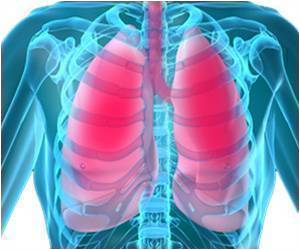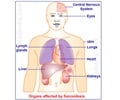New understanding of how cytomegalovirus interacts with host cells provides potential therapeutic target.

‘CPEB1, one of a family of hundreds of RNA-binding proteins in the human genome, is important for establishing productive cytomegalovirus infections.’





"We found that CPEB1, one of a family of hundreds of RNA-binding proteins in the human genome, is important for establishing productive cytomegalovirus infections," said senior author Gene Yeo, PhD, professor of cellular and molecular medicine at UC San Diego School of Medicine.CMV is a virus that infects more than half of all adults by age 40, and stays for life. Most infected people are not aware that they have CMV because it rarely causes symptoms. However, CMV can cause serious health problems for people with compromised immune systems, or babies infected with the virus before birth. There are currently no treatments or vaccines for CMV.
In human cells, RNA is the genetic material that carries instructions from the DNA in a cell's nucleus out to the cytoplasm, where molecular machinery uses those instructions to build proteins. CPEB1 is a human protein that normally binds RNAs that are destined to be translated into proteins.
Yeo's team discovered that CPEB1 levels increase dramatically in human cells infected by CMV. Using genomics technologies, the researchers also found that increased CPEB1 levels in CMV-infected cells leads to abnormal processing of RNAs encoding thousands of human genes. In addition, they were surprised to find that CPEB1 was necessary for proper processing of viral RNAs. Without the host CPEB1 protein, viral RNA did not mature properly and the virus was weakened.
CMV-infected human cells undergo abnormal changes and produce more virus, which ultimately infects other cells. In collaboration with Deborah Spector, PhD, Distinguished Professor at UC San Diego School of Medicine and Skaggs School of Pharmacy and Pharmaceutical Sciences, the team went on to show that suppressing CPEB1 levels during CMV infection reversed these harmful cellular changes and reduced viral production tenfold.
Advertisement
Yeo said the next steps are to determine the therapeutic value of inhibiting CPEB1 in CMV infections and identify other RNA-binding proteins that may be important in other viral infections.
Advertisement












